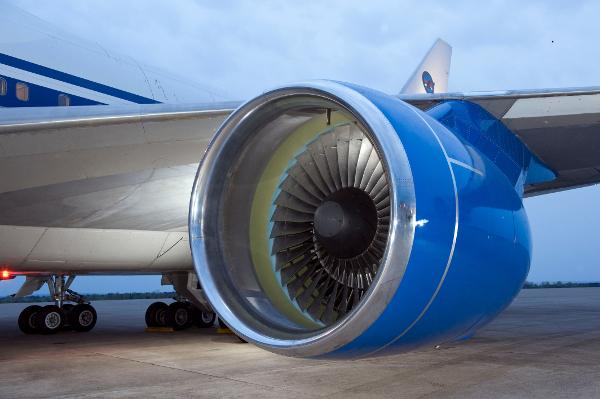Do Lessees Have The Power Now? | リース会社よりも借り手の方が力を持ったのか?

2021年には、次の借り手が見つからないまま約1,000機の航空機がリースから返却される見込みで、これらの機材のアフターマーケットはこれまでとはまったく異なるものになるだろう。これほど過酷な局面においては、契約条件どころか法律よりもマーケットの状況が優先される…というより、単にお互いが契約上の義務を履行できない状況にもなりかねない。
Magnetic Leasing社の最高運用責任者・Alex Vella氏は、今では借り手の方が力を持つようになったと話す。たとえ、借り手がデフォルトに陥っていたとしても。「航空会社の流動性不足のため、多くの再リース条件が免除されている」と同氏は語る。一方で、新たな借り手はより良いリース条件を要求できるようになるだろうと彼は予想している。
当初の借り手または代行者が行うはずだった再リース作業の減少と、新たな借り手に対する厳しいリース条件の間にあるギャップは、なんらかの方法で埋めなくてはならない。
その解決策として、MRO業者がより多くのリース移行業務を受注できるようになるかもしれないが、そのためにはいくつかの大きな疑問が解消されなくてはならない。いつどこでその業務が発生するのか?同じ場所で実施するのか、他の業者に引き継いで別の場所で実施されるのか?誰がその費用を払い、それは速やかに支払われるのか?…といったところだ。
最後の疑問が一番の問題になるだろう。当分の間、リース会社も航空会社と同様、大きな負荷に晒されることになるからだ。「また、予備機も大幅に不足している」とVella氏は指摘する。これにより、リース会社は耐用年数半ばの機材やエンジンに対し、今コストをかけて整備するのか、後回しにするのか、それとも二度としないのか、という判断を迫られている。
また同氏は、現在のマーケット状況を考えると、リース期間が満了したあとも、航空会社が持つ認証で機材を維持することを求めるリース会社が増えると考えており、「こうすれば、継続的な耐空証明の管理や保険の問題といった厄介事を回避することができる。次の借り手がいないからだ」と語った。
これらは、現在の状況下でのリース移行とMRO業者にまつわる課題のごく一部にすぎない。「最大の問題のひとつは、機材が溢れかえっていることだ。あまりに多くの機材が予定よりも早く返却される中、それらを配置するところがない。もうひとつ問題を挙げるとすれば、それは借り手の信用リスクマトリックスの再確認だ」と彼は話す。
このような困難な状況の中で活動しようとするMRO業者にとっての救世主は、技術サービスや保管場所をフルサービスで提供するMagnetic社のような存在だ。
Vella氏は「我々は機材の次の行き先が決まるまで、リース会社に代わって整備を行い、保管することができる。つまり、次のリース先が見つかるまでの間、駐機場所を提供し、整備や他のサービスを実施するということだ」と話す。
そして、最も長期にわたってこのようなサービスを必要とするのは、国際線に使用されるワイドボディ機だ。そのため、Magnetic社の子会社であるEngineStands24社は最近、ボーイング747や767が搭載するPW4000-94、エアバスA330が搭載するTrent 700用のエンジンスタンドを購入した。
事業部長のDaiva Zemaite氏は、主にボーイング社製ワイドボディ機の貨物機改修作業のために、エンジンスタンドの需要が高まっていると話す。これらのエンジンスタンドは、世界中のあらゆる航空会社やMRO業者にリースすることが可能だ。
以上は、Henry CanadayがInside MRO誌いた記事です。Aviation Week Intelligence Network (AWIN) のメンバーシップにご登録いただくと、開発プログラムやフリートの情報、会社や連絡先データベースへのアクセスが可能になり、新たなビジネスの発見やマーケット動向を把握することができます。貴社向けにカスタマイズされた製品デモをリクエスト。
With about a thousand aircraft due to be returned from leases without onward lessees in sight in 2021, the aftermarket for these assets will be much different than in the past. In extreme stress, contract terms and even laws may be less important than market conditions and the simple ability--or inability--of each party to perform its obligations.
Alex Vella, chief operating officer of Magnetic Leasing, says power is shifting to the lessee, even if the lessee is in default. “Due to airlines’ lack of liquidity, many redelivery conditions are being waived,” Vella says. On the other hand, new lessees will be able to demand better delivery conditions, the Magnetic exec predicts.
The gap between reduced redelivery work done by or on behalf of the original lessee and the tighter standard for delivery to the new lessee will have to be closed somehow.
MROs may thus have more lease transition work to do, but several big questions will have to be answered. When and where will this work be done? Will it all be done in the same place, or split between different MROs? And who will pay for it, and will they pay promptly?
That last question may be most troubling. Lessors, like airlines, will be under severe stress for quite a while. “There‘s also a significant shortfall in reserve collections,” Vella notes. This is forcing lessors of mid-life aircraft into decisions whether to make additional investments in aircraft and engines now, later or never.
Also, given the current state of the market, Vella says more lessors are asking the lessee to retain an aircraft on the lessee’s own air operator's certificate, even after its lease has expired. This “avoids additional operational headaches such as continuing airworthiness management and insurance because there isn‘t another lessee to transition to.”
These are just a few of the challenges of lease transition and MRO under current conditions. “One of the biggest challenges is a resource overload with so many assets being redelivered unplanned ahead of schedule and nowhere to place them,” Vella says. “Another challenge I‘d mention is reassessment of the lessee credit risk matrix.”
For MROs trying to work under these difficult conditions it helps to be, like Magnetic, a full-service technical and storage provider.
“We are able to store and maintain aircraft for lessors until they have a new plan for the asset,” Vella says. “We are able to provide parking, maintenance and other services for the aircraft until lessors are ready to lease it.”
And the aircraft that will likely need the most work the longest are the widebodies that fly international routes. So Magnetic’s EngineStands24 subsidiary has recently purchased PW4000-94 engine stands for Boeing 747s and 767s and Trent 700 engine stands for Airbus A330s.
The unit’s head Daiva Zemaite says demand for stands is increasing, largely due to cargo conversions of the Boeing widebodies. The stands can be leased and delivered to any airline or MRO in the world.